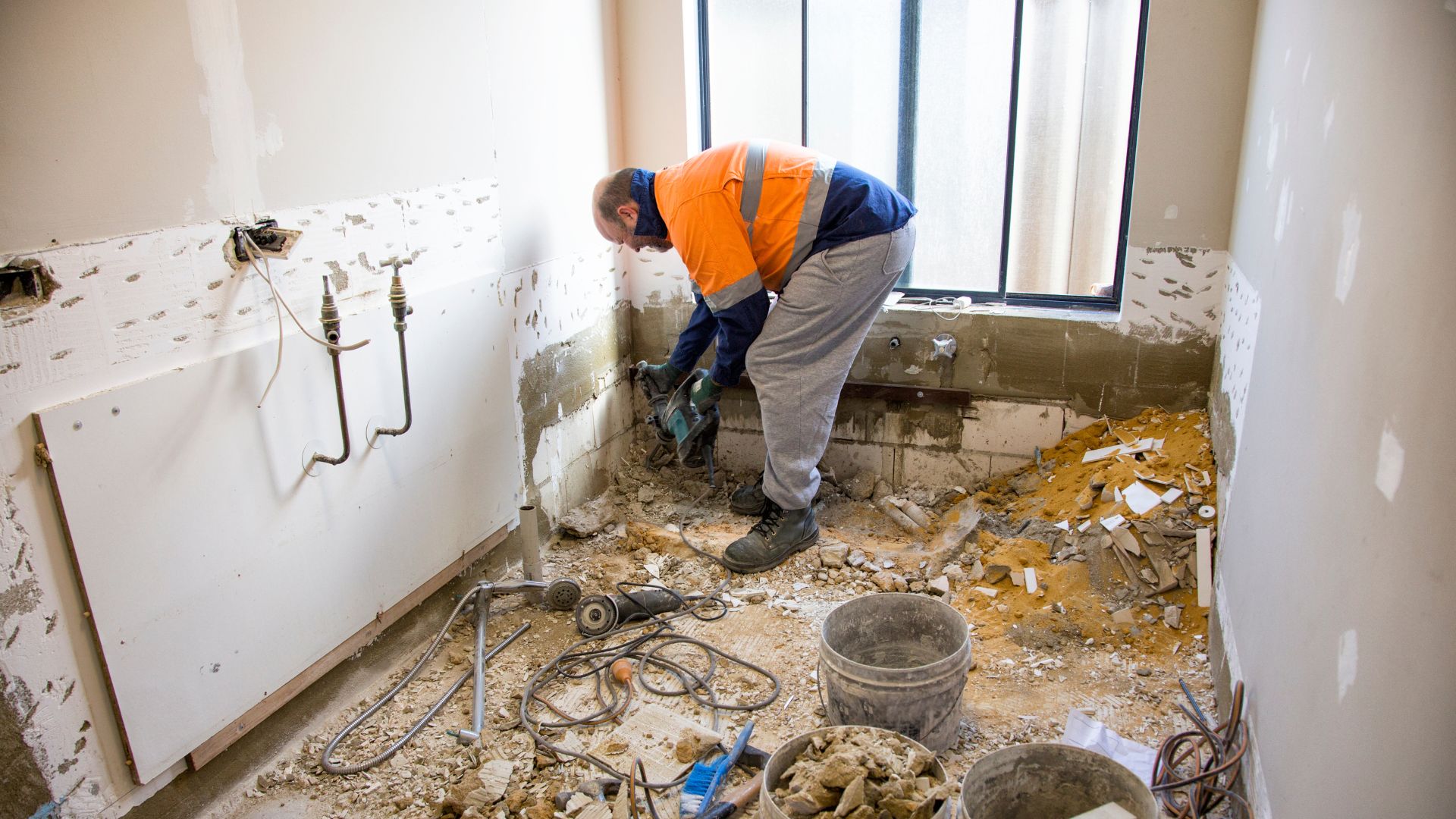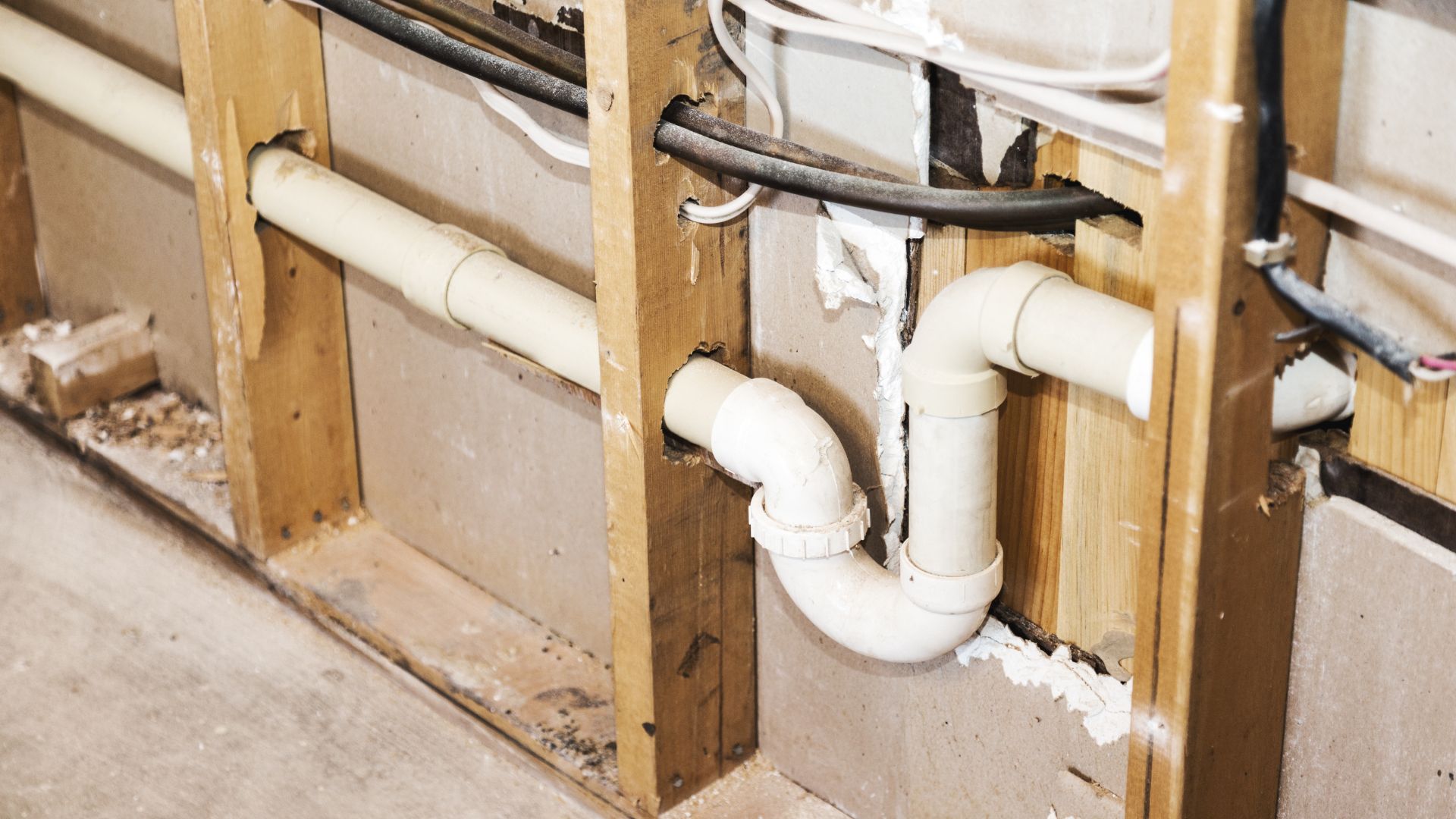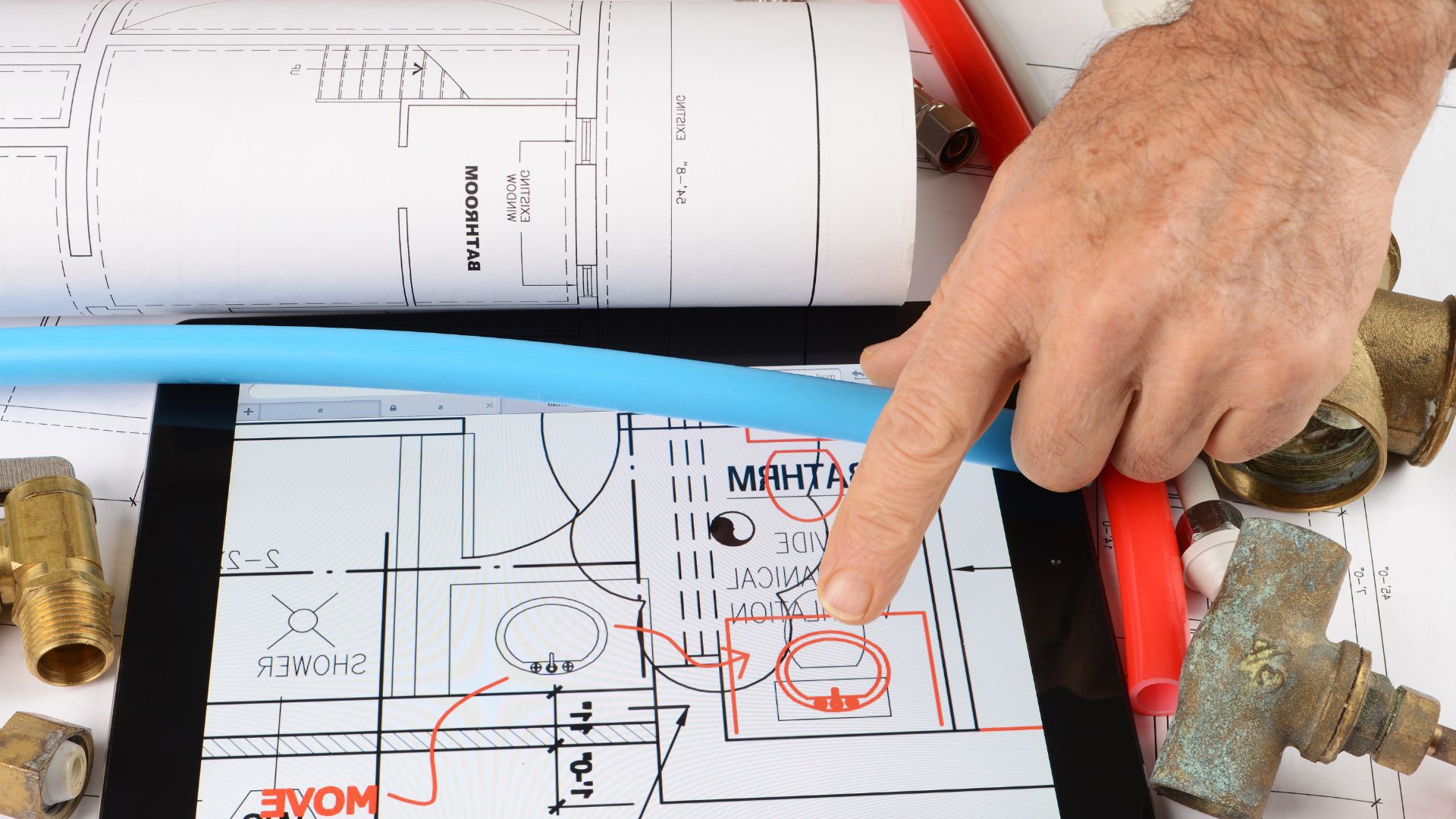Planning a home extension is exciting, but overlooking crucial plumbing aspects can lead to costly delays. Whether you’re adding a bathroom, kitchen, or living area, making sure your plumbing is sorted upfront is key to keeping the project on track.
This guide provides a comprehensive checklist to help you identify potential challenges and address them proactively. From understanding your current plumbing layout to navigating regulatory requirements, this article equips you with the knowledge to make informed decisions.

Address plumbing considerations early to avoid unwelcome surprises and keep your extension running smoothly. Delve into the details and set your project up for success right from the beginning.
Understanding Your Plumbing Layout
Before starting your home extension, it’s crucial to understand your existing plumbing layout. This step ensures seamless integration with new systems.
Assess Existing Plumbing Systems
Take stock of your current plumbing setup. Look for signs of wear and outdated parts that could cause trouble down the line. Identify where new connections will integrate for a hassle-free extension.
Blueprint and Design Analysis
Review detailed plans for your extension. This analysis ensures that your new design aligns perfectly with the existing plumbing infrastructure. Look for areas where new fixtures will connect and plan accordingly to prevent future complications.
Consult with Professionals
Engage with licensed plumbers for expert advice. Their experience can provide valuable insights, helping you foresee potential challenges that may take time to be obvious. Professional input is invaluable in planning a successful extension, saving you time and money in the long run.
Regulatory Considerations

Understanding the regulatory framework is crucial when embarking on a home extension. Ensuring compliance with local plumbing standards is critical to a successful project.
Building Codes and Regulations
Familiarise yourself with local plumbing codes.
- The Plumbing and Drainage Act 2018 regulates plumbing and drainage work, focusing on reducing risks to public health, safety, and the environment.
- The Plumbing and Drainage Regulation 2019 ensures all work is compliant. The Plumbing Code of Australia (PCA), part of the National Construction Code, outlines technical requirements for plumbing and drainage systems.
- Additionally, the Queensland Plumbing and Wastewater Code (Version 2024.1) adopts standards not covered by the PCA, sometimes imposing higher or Queensland-specific requirements.
Permits and Approvals
Understand the necessary permits required for your extension. Different councils may have specific requirements, so it’s essential to research and gather all relevant information. Initiate the approval process early to prevent delays. Securing permits in advance ensures your project can proceed without unexpected interruptions, keeping everything on track and within budget. Consulting with experienced professionals can simplify this process, providing guidance and support to navigate the complexities of regulatory compliance effectively.
Water Supply Assessment
It’s crucial to ensure your water supply can handle the needs of your home extension. Checking capacity and pressure upfront will help you steer clear of problems later on.
Capacity Check
Assess if your current water supply system can handle the additional demand. This involves examining the size and condition of existing pipes and determining if they are sufficient for the increased usage. Consider upgrading pipes to support the new requirements and ensure efficient water flow throughout the extension.
Water Pressure Evaluation
Check your current water pressure to ensure it’s up to the mark for your expanded home. Low pressure can be quite frustrating, particularly when dealing with multiple taps. Plan for adjustments like pressure boosters or valve tweaks to keep everything flowing smoothly. This upfront effort will maintain comfort and efficiency throughout your home.
Drainage and Sewage Considerations

Proper drainage and sewage planning are essential for a successful home extension. Ensuring your systems can handle increased demand will prevent future issues.
Sewage System Compatibility
Evaluate the capacity of your sewer lines to determine if they can manage the additional load from your extension. Inspect the current system for any signs of wear or blockages. Plan for potential upgrades to accommodate increased usage, such as installing larger pipes or enhancing existing infrastructure. This proactive approach ensures your sewage system remains efficient and reliable.
Drainage System Planning
Ensure proper sloping and drainage for new areas to prevent water accumulation. Poor drainage can lead to structural damage and costly repairs. Plan the layout to direct water away from the foundation and other critical areas. To enhance water management, consider implementing advanced drainage solutions, such as French drains or sump pumps. This will help prevent future water pooling or damage, safeguarding your home from potential issues. Proper planning will ensure the longevity and functionality of your extension.
Hot Water System Review
Reviewing your hot water system is crucial when planning a home extension. Assess capacity and energy sources to ensure efficiency and sustainability.
Capacity and Efficiency
Determine if your hot water system can support the extension. Check the current system’s capacity to handle additional bathrooms or appliances. If it’s insufficient, explore options for more efficient systems. Consider upgrading to a larger tank or opting for a tankless system, which can provide continuous hot water on demand. These systems often offer better energy efficiency, reducing long-term costs.
Energy Source Evaluation
Consider alternative energy sources, such as solar, for sustainability. Solar hot water systems can significantly reduce energy consumption and lower utility bills. Evaluate the feasibility of integrating solar panels or heat pumps, which can offer environmentally friendly solutions while maintaining reliable performance. Exploring these options can enhance your home’s energy efficiency, aligning with modern sustainability goals.
Risk Management and Contingency Planning
Effective risk management is essential for a successful home extension. Identifying potential issues and preparing for emergencies can prevent costly delays.
Identify Potential Risks
Discuss common plumbing issues during extensions, such as leaks, blockages, or incorrect installations. Develop strategies to mitigate these risks by conducting thorough inspections and ensuring quality materials are used. Proactive measures will help minimise disruptions and maintain project timelines.
Emergency Preparedness
Establish a contingency plan for unexpected plumbing issues. Ensure quick access to plumbing professionals in emergencies by having contact details readily available. This preparedness will enable swift responses to unforeseen problems, reducing potential damage and stress.
Innovative Plumbing Solutions
Exploring innovative plumbing solutions can enhance efficiency and sustainability in your home extension. Embrace innovative technologies and sustainable practices to future-proof your plumbing systems.
Smart Plumbing Technologies
Explore the integration of smart plumbing solutions for efficiency. These technologies offer remote monitoring and control features, helping you manage water usage effectively. Discuss advancements in leak detection systems that alert you to potential issues early, preventing costly damage. Smart water meters can also track consumption, promoting conservation efforts.
Sustainable Practices
Incorporate eco-friendly materials and systems to minimise environmental impact. Consider using low-flow fixtures and recycled materials, which reduce water waste and promote sustainability. Highlight the benefits of sustainable plumbing practices, such as lower utility bills and a reduced carbon footprint, contributing to a greener future.
Budgeting for Plumbing Needs

Effective budgeting is crucial for managing plumbing needs in your home extension. Accurate cost estimation and exploring financing options can help maintain financial control.
Cost Estimation
List materials, labour, and installation fees to break down potential plumbing costs. Include a buffer for unforeseen expenses, such as unexpected repairs or upgrades, to ensure you’re prepared for surprises.
Financing Options
Explore different financing solutions for plumbing upgrades, such as personal loans, home equity loans, or lines of credit. Discuss the pros and cons of each option, considering factors like interest rates, repayment terms, and eligibility requirements. This approach helps you choose the best financial strategy for your project, ensuring affordability and peace of mind.
Engaging the Right Professionals
Engaging qualified professionals is vital to the success of your home extension. Selecting experienced plumbers and maintaining effective collaboration will ensure a smooth project.
Selecting Qualified Plumbers
Criteria for Choosing:
- Ensure they are licensed and have relevant experience.
- Look for specialisations that match your project needs.
Checking References:
- Review past work to assess quality.
- Contact previous clients for feedback on reliability and workmanship.
Collaborating with Experts
Clear Communication:
- Establish open lines of communication with your team.
- Set expectations and discuss project goals.
Regular Updates:
- Schedule consistent inspections to monitor progress.
- Address any issues promptly to avoid delays.
Engaging the right professionals and fostering a collaborative environment will help achieve a successful and stress-free home extension.

Your Path to a Seamless Extension
Embarking on a home extension is a significant investment, and ensuring your plumbing is prepared is crucial to its success. Proper planning and professional assistance can make all the difference. With a comprehensive plumbing checklist, you can address potential issues before they arise, ensuring a smooth and efficient process.
Assess your current plumbing layout and evaluate whether your systems can handle increased demand. Understanding local regulations and securing necessary permits will prevent legal setbacks. Innovative plumbing solutions and sustainable practices should be considered to enhance efficiency and reduce environmental impact.
Budgeting accurately and exploring financing options will help manage costs effectively. Engaging qualified professionals ensures your project benefits from expert insights and quality workmanship. Clear communication and regular updates with your team will keep everything on track.
For expert guidance and plumbing renovation services, contact Big Blue Plumbing. Our team is dedicated to helping you achieve a seamless and stress-free home extension experience. Trust us to provide the expertise and support needed to transform your vision into reality.



